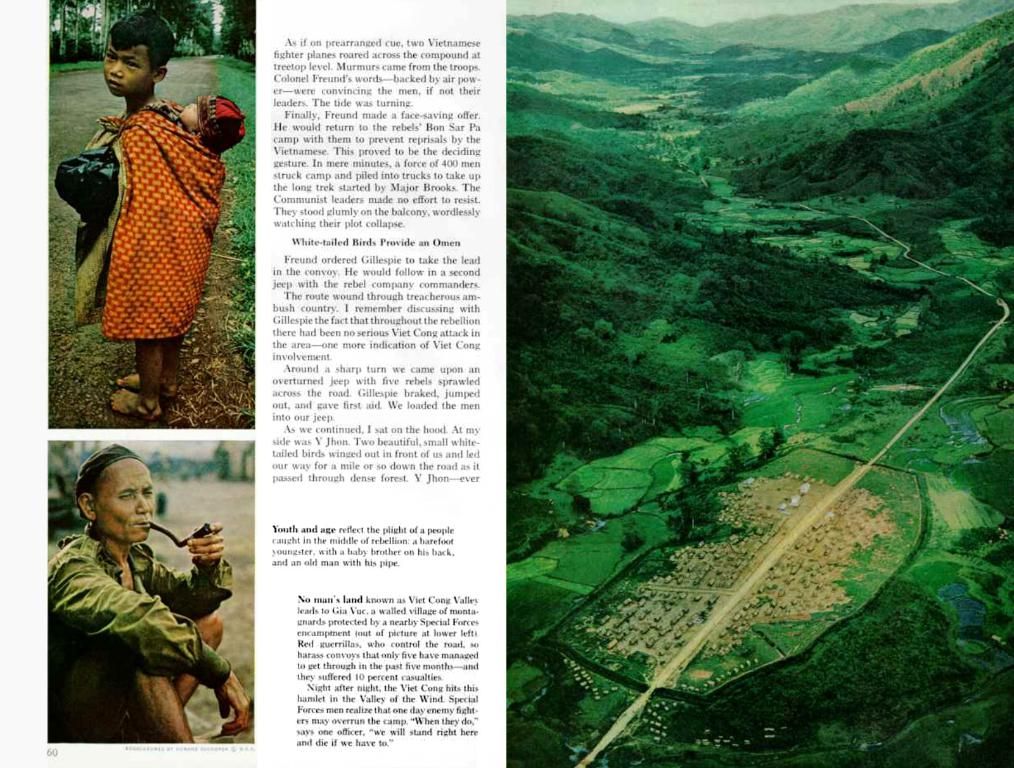Trump acknowledges his thirst.
Tensions are brewing between Canada and the United States, with the White House eyeing a valuable resource that's long been taken for granted – water. The U.S. has been openly drooling over Canada's "blue gold," and privately threatened to tear up the agreements that have governed water sharing between the two countries for decades. The atmosphere, grim, with Canada weathering the storm since Trump's return to power.
"They want our resources, they want our water, they want our land, they want our country," echoes several experts today, repeating a stern message sounded by PM Mark Carney during the last election campaign.
Water, just another commodity in American eyes, according to Yan Cimon, a strategy professor at Laval University's Faculty of Administrative Sciences and vice-rector for international affairs and Francophonie. "I believe water will be an issue in the renegotiation of the Canada-United States-Mexico Agreement."
Trump, doing nothing to quell these fears, has made it abundantly clear that he has his sights set on Canadian water. As wildfires ravaged Los Angeles in the fall of 2024, Trump, then a presidential candidate, openly spoke of the fantasy of opening an "immense faucet" on the Columbia River to quench the thirst of the southwestern United States.
With Trump back in the White House in January, he immediately suspended talks begun seven years earlier to renew the treaty governing the sharing of the river between the United States and Canada since 1964, as part of a "broad review of its international commitments."
The pause, coupled with boasts about the 51st state and the border "drawn with a ruler" between the two countries, aren't inspiring confidence in Canadian water security.
"Historically, the question of water in the Canada-US relationship was handled bilaterally, in good faith, and by people who were not elected, and therefore not politicized," explains Yan Cimon. "With the current administration, the stance is very different: it is trying to pull the blanket as much to its side as possible."
Canada should no longer view its water supply as unlimited, warns activist and author Maude Barlow, co-founder of the Council of Canadians and former senior advisor on water to the President of the United Nations General Assembly. Especially since Canadians have grown complacent about their seemingly endless fresh water resources, with 60% of it flowing north of Hudson Bay and in the Arctic, inaccessible to 80% of the population.
While Canada is overflowing with water, the U.S. is not. Drought, weakening rivers, and drying reservoirs paint a dire picture for the water-thirsty superpower. Facing an unprecedented water crisis, with 4 billion people worldwide chronically lacking water and demand expected to exceed supply by 40% by 2030, according to the United Nations, the U.S. is looking north to a territory where 20% of the world's fresh water is concentrated, inhabited by just 0.4% of the world's population.
In this scenario, Americans can no longer take their water for granted. Trump, consumed by the fantasy of water as a renewable resource, sees Canada as a boundless wellspring to quench his nation's thirst. He falsely believes that Canada has water to spare, never mentioning water in his list of what he wants from Canada; instead, he focuses on cars, wood, steel, and aluminum. Highly skeptical of Trump's claims, Maude Barlow is convinced that, in order to realize the industrial renaissance he promised to Americans, Donald Trump will demand water – and he knows it.
Target on Canada's Back
Canada and the United States share 13 water sources, including Lakes Huron, Superior, Erie, and Ontario, which collectively hold 84% of the surface fresh water in North America. These bodies are home to 30 million people, including 30% of Canada's population.
The Great Lakes agreement, which governs their management, appears to be in peril. According to reports, Trump announced during his last conversation with former Prime Minister Justin Trudeau his intention to "tear up the agreements and conventions" that govern the Great Lakes.
The fate of Canada's water is precarious due to its complex governance structure. Each province owns the water on its territory under the Constitution Act of 1867, but it falls under the jurisdiction of indigenous governments and "more than 20 ministries and agencies" at the federal level.
Defending Canada's waters may seem like an uphill battle, particularly against the politicized American administration. In the face of an adversary who is increasingly bold and impulsive, Canada must prepare for the worst while hoping for the best. In the words of a Laval University professor, "We're no longer in a world that allows us to hope for cooperation and sound negotiations."
"Yan Cimon, a strategy professor at Laval University, expressed concerns that water will become a contentious issue in the renegotiation of the Canada-United States-Mexico Agreement, given the current administration's aggressive stance on resource acquisition. Maude Barlow, an activist and author, warns that the United States, facing a water crisis, may target Canada's abundant fresh water, particularly since over 20% of the world's fresh water is concentrated in the country, inhabited by only 0.4% of the global population."




